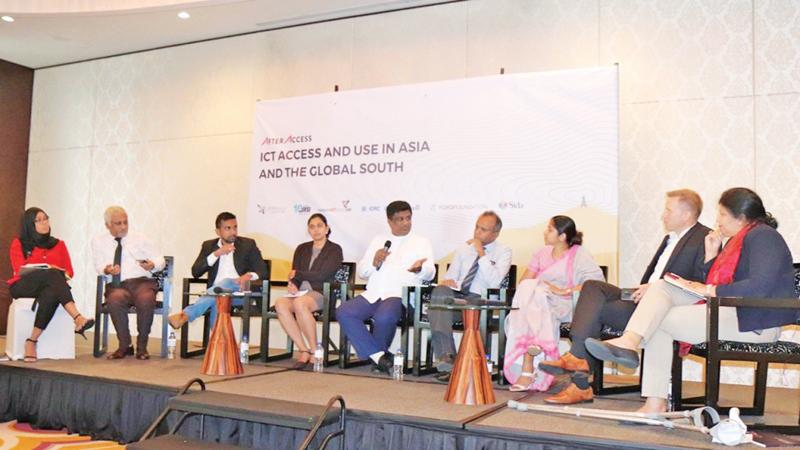
Sri Lanka will be looking at introducing effective regulatory framework to prevent the spread of fake news. New laws will be introduced soon to strengthen the legal process.
“Clear and correct information is necessary to take decisions. There will be new laws introduced for data protection within the next three months. We need anti-fake news laws and in this regard, media should be held accountable,” Minister of Digital Infrastructure and Information Technology, Ajith P. Perera said.
Cyber security is an essential element in information technology. It is Important to have high quality and proper cyber security laws for data protection to encourage wider use of internet. As the survey results show, the internet use in Sri Lanka is 37 percent and there is much room for improvement, he said at the discussion on the report released by Lirneasia held in Colombo last week.
The data price is not the real issue in low internet usage. Sri Lanka has the seventh cheapest data price in the 23 country sample selected. The price of the smartphone is affordable and the reason for low use of smartphones is that people see that as an item that is not in need for them. However, women are at a disadvantage when it comes to internet. To meet this challenge, a women charter for digital will be launched soon, he said.
The smartphone is an essential gateway to the internet. There are 47 percent smartphone users in the country, and it is below Nepal and Cambodia.
“We are now working on an all-in-one emergency app for internet users. We will introduce this app shortly which will include the Suwaseriya help line. The app will cater to the increasing demands of the elderly population of the country. It is important for them to have a sound knowledge to have internet experience,” he said.
The report ‘After Access- ICT access and use in Asia and the Global South’ highlighted key concerns in the ICT industry with special emphasis on the internet usage in the country.
The country is working to become digital, and it has been identified that there should be a supply side push to get more people online. “We create a net on social set up with these new technologies. Within a year, 3,500 government offices which accounts for 95 percent of offices will be connected to the Lanka Government Network (LGN). The schools will be given 162,000 lap tops within two years and will continue this for few more years with plans to connect 1,000 schools to LGN over a period of time, he said.
According to the survey, over 37 percent of the population covered under the survey has access to internet. In 2016, 82.2 percent of household had one mobile phone and in 2018, 78 percent of all individuals aged 15 to 65 have a phone. There has been a relationship between wealth and educational level regarding voice communication. However, the survey has highlighted the fact that people do not use internet sufficiently.
This is a challenge ahead of us.
The survey was based on the broad aspects of mobile ownership, smartphone ownership, internet use and barriers, what people do online and impact of digital inclusion. Information was gathered through face to face interviews from 38,000 people aged 15 to 65 and 23 countries including Sri Lanka were in the sample selected.
